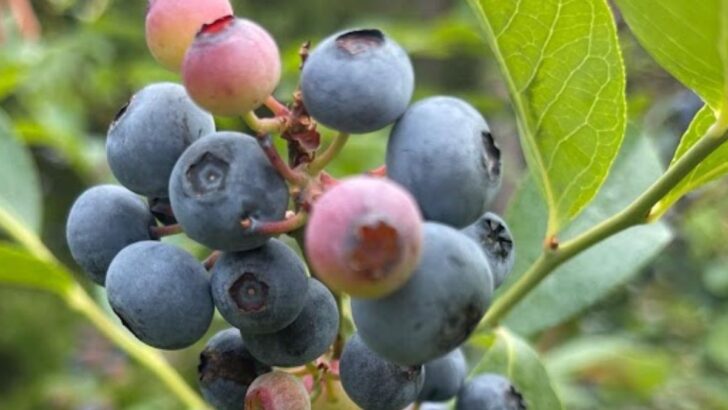Blueberry bushes not only provide delicious berries but are also an attractive shrub to include in an edible landscape. Whether you are interested in boosting berry production through permaculture or interplanting with compatible plants for a beautiful garden, knowing some of the best companion plants for blueberries will help you determine where and how to plant your blueberry bushes.

8 Best Companion Plants for Blueberries
When determining which plants to grow alongside blueberries, you will want to consider the growing requirements and challenges of blueberry bushes. Blueberries prefer organically rich, acidic soil with good drainage, and while they will tolerate partial shade, they grow best in full sun. Choose at least two different varieties of blueberries to plant together, as cross pollination improves fruit production. Finally, make sure to provide sufficient space between blueberry bushes and their companion plants to ensure good airflow and avoid damaging the blueberry roots.
1. Basil
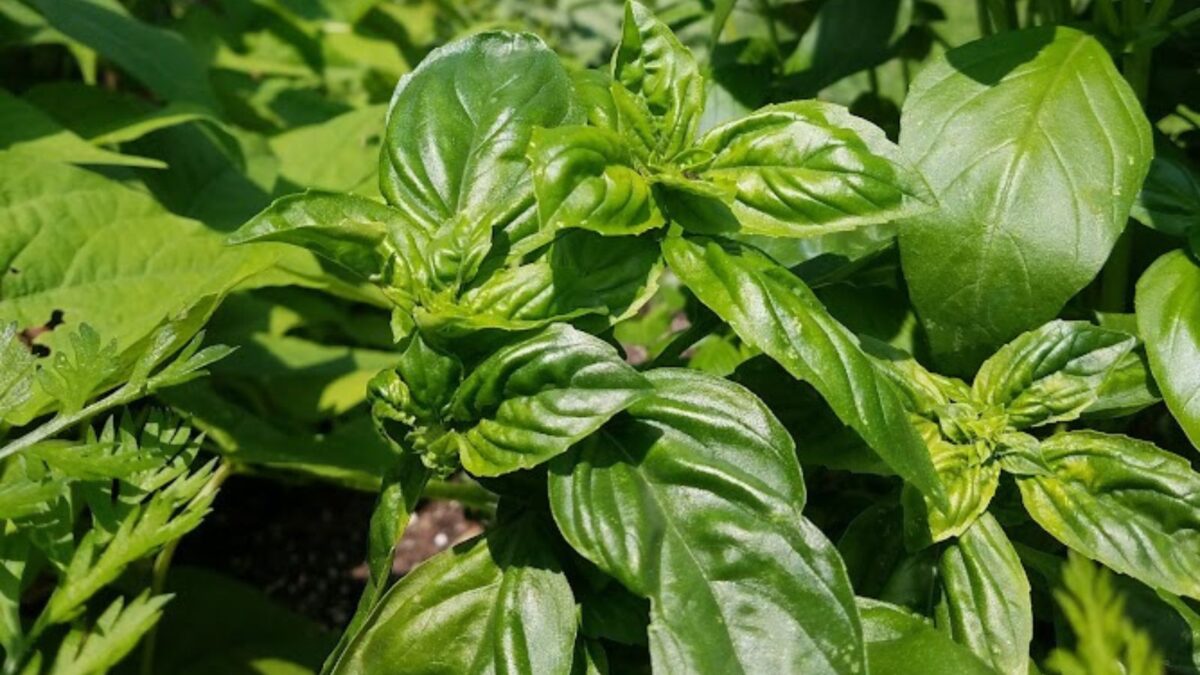
As an aromatic herb, basil helps repel insect pests that might otherwise munch on your blueberry plants. When it is allowed to bloom, its flowers also attract beneficial insects that pollinate the blueberry blossoms or prey on pests that aren’t deterred by the basil itself. And some gardeners claim that growing basil nearby actually improves the flavor of the blueberries.
2. Borage
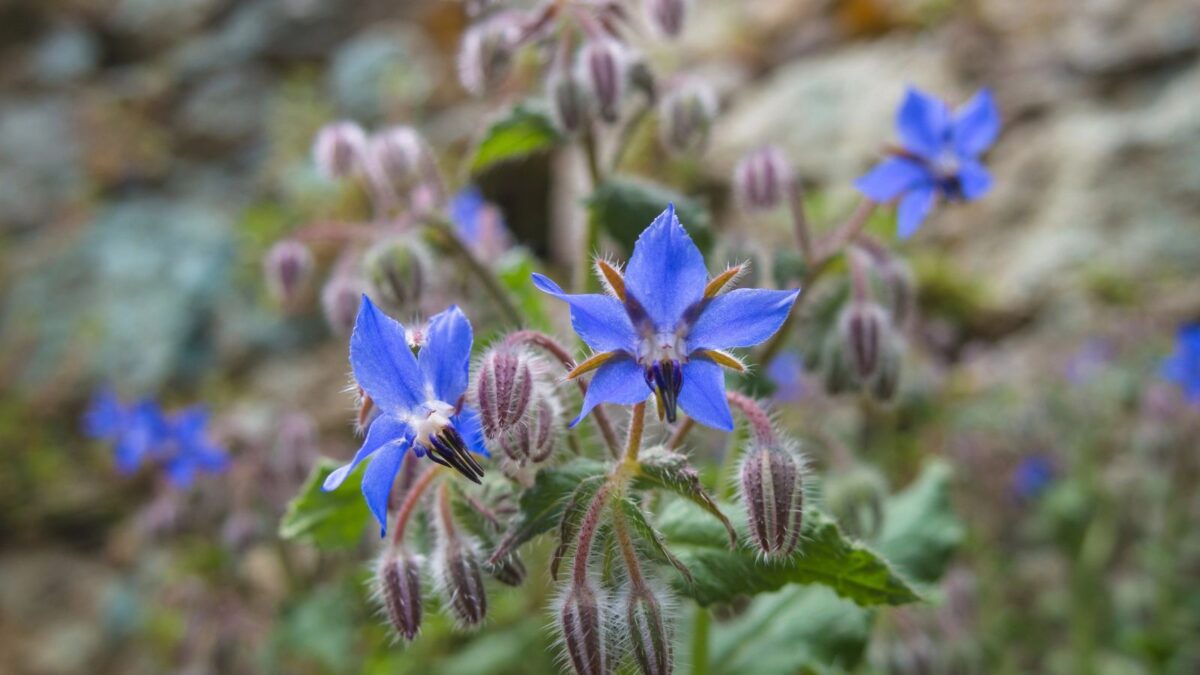
Borage is a beautiful herb, with striking blue-purple, star-shaped flowers that bloom in clusters on vibrant pink stems. More importantly for your blueberry bushes, pollinators like bees find these flowers extremely attractive.
Borage may even add trace minerals to the soil, thus improving the growth of neighboring plants, like blueberries. Late in the season, when it grows heavy and falls over, it also serves as mulch, suppressing weeds holding moisture in the soil.
3. Chives
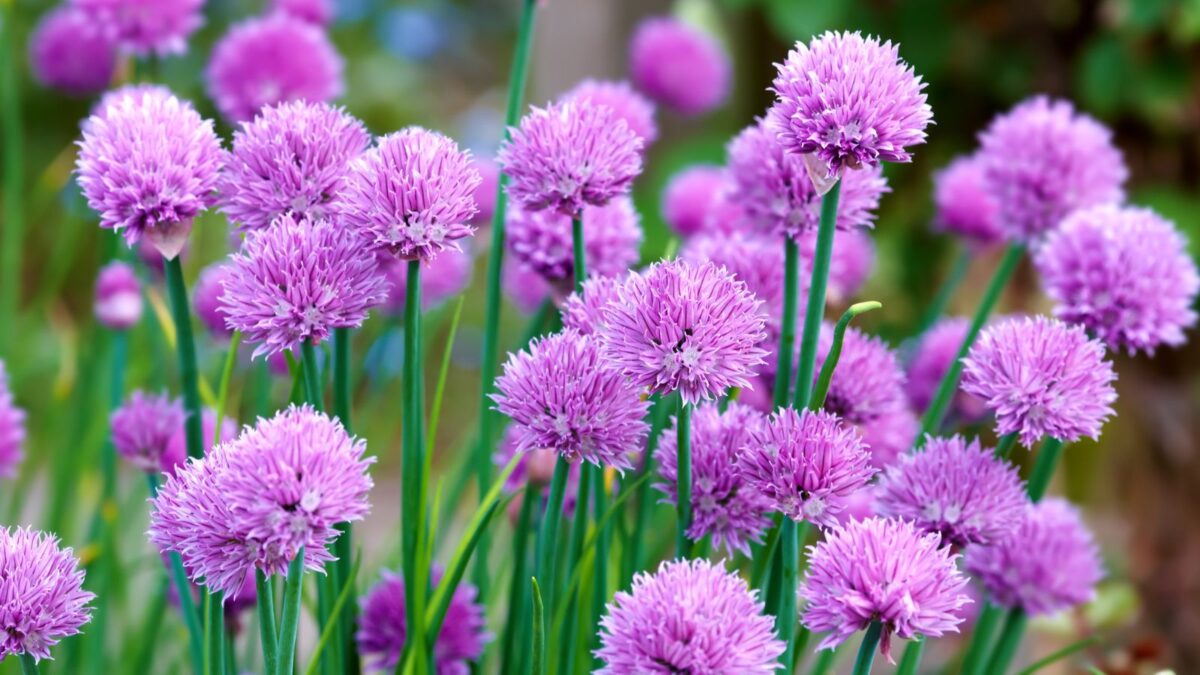
Chives and other alliums are excellent pest-deterring companion plants. They have a pungent odor that discourages insect pests like aphids and Japanese beetles, as well as larger pests, like rabbits and even deer. Additionally, the beautiful purplish, pompom-like flowers that chives produce attract pollinators and other beneficial insects.
4. Pine trees

Like blueberries, pine trees and other evergreen trees thrive in acidic soil. Plus, their fallen needles create a nice mulch that further acidifies the soil, creating the perfect growing conditions for blueberry bushes. If you have pine trees or other evergreens on your property, consider planting blueberry bushes on the south side of the trees so that the blueberries benefit from the pine needle mulch while still receiving plenty of sunlight.
5. Rhododendron
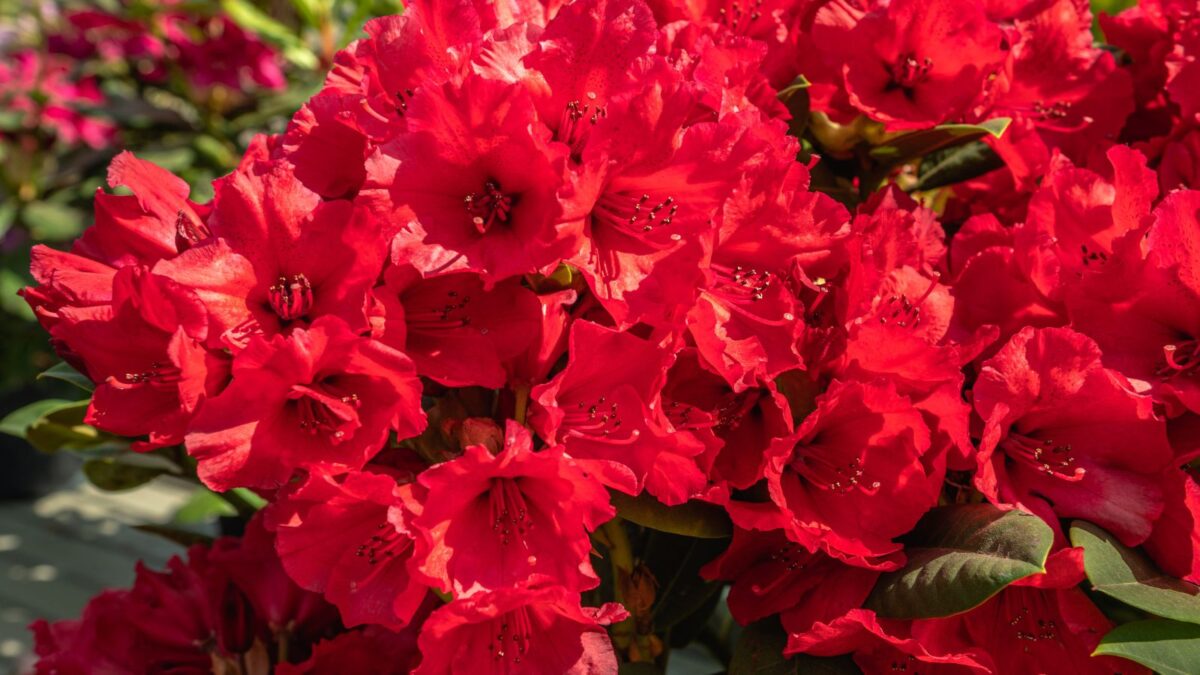
Rhododendrons (and azaleas, which belong to the same genus) also like acidic soil, and their beautiful flowers attract pollinators around the same time that blueberry bushes bloom. They do like a bit of shade, though, which makes them an excellent addition to a food forest along with pine trees and blueberries.
6. Strawberries
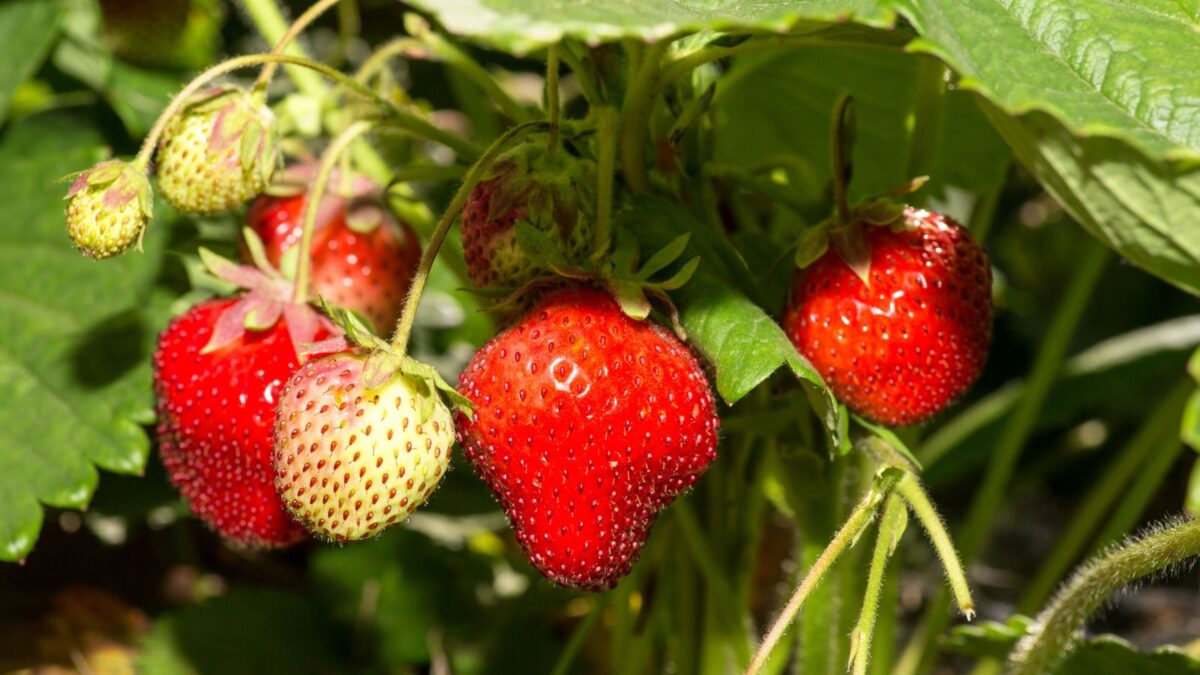
To save space in the garden and provide a ground cover around your blueberry bushes, try planting strawberries under them. Both share similar growing requirements, and the strawberry vines act as a natural mulch to shade out weeds and help keep the soil moist. Plus, you get two types of berries from one garden bed! However, if you live in a warm, humid area and often struggle with fungal diseases in the garden, you might want to skip this combination.
7. Thyme
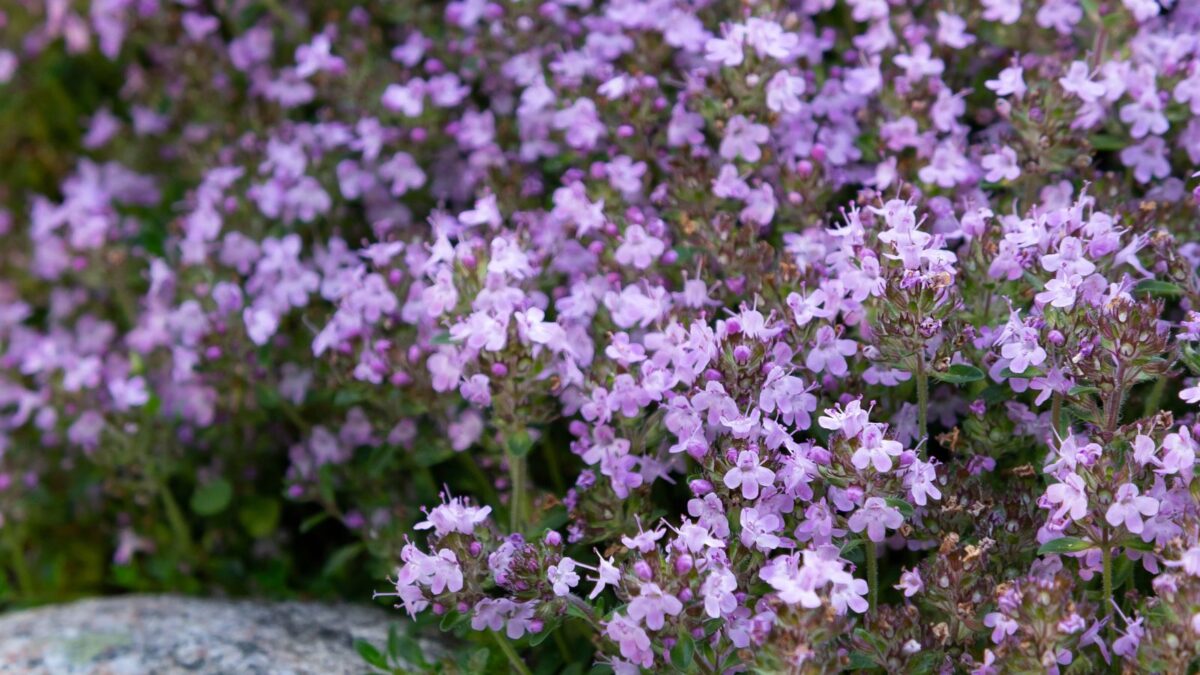
Like other aromatic herbs, thyme also deters pests, and its tiny flowers attract beneficial insects. In addition, this sprawling, low-growing herb serves as an excellent ground cover, especially when you choose the aptly named creeping thyme. This is a great alternative to strawberries as a ground cover if you worry about fungal diseases.
8. Wildflowers
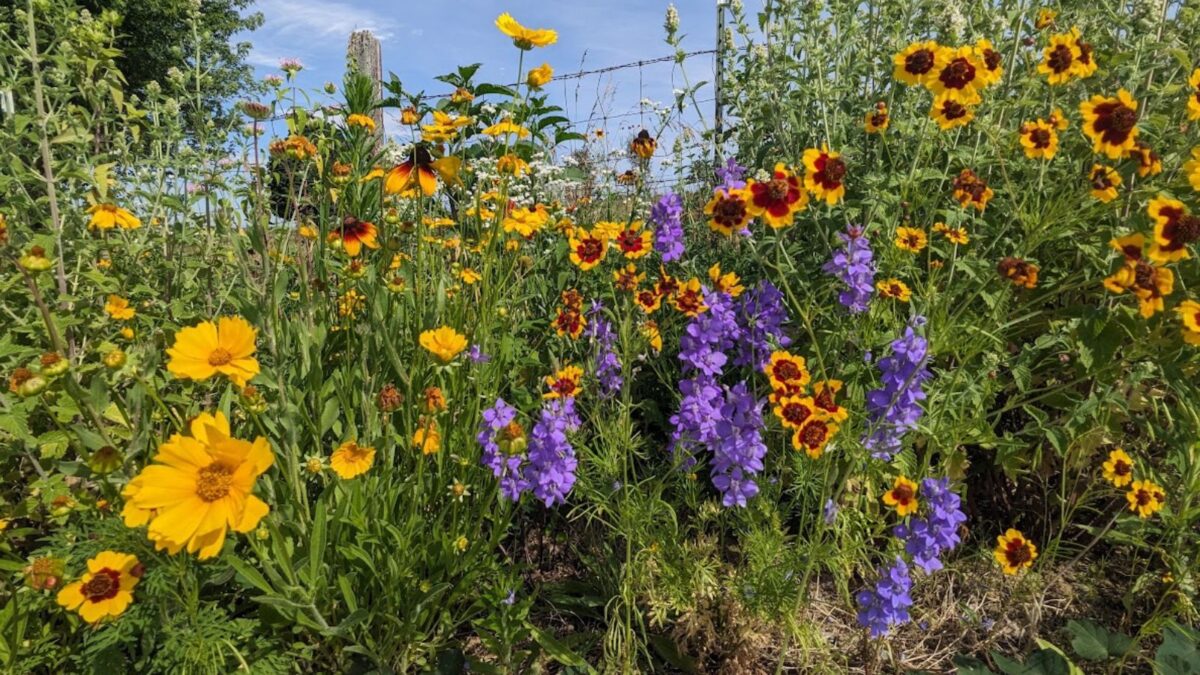
To encourage pollinators and other beneficial insects to visit your blueberry bushes, plant native wildflowers nearby. Choose flowers that share growing preferences with blueberries, such as bee balm or Virginia bluebells, the latter of which is especially attractive to bumblebees and benefits from the shade that blueberry bushes provide.
3 Worst Companion Plants for Blueberries
Unfortunately, not all plants get along well. The following garden plants clash with blueberry bushes and should be planted in a different part of the garden.
1. Asparagus

While it can be tempting to group all perennial food crops together, asparagus and blueberries are best kept separate. Asparagus prefers alkaline soil (not acidic, like blueberries enjoy), and as a heavy feeder, it can hog all of the nutrients, leaving little for any blueberries planted nearby.
2. Brassicas
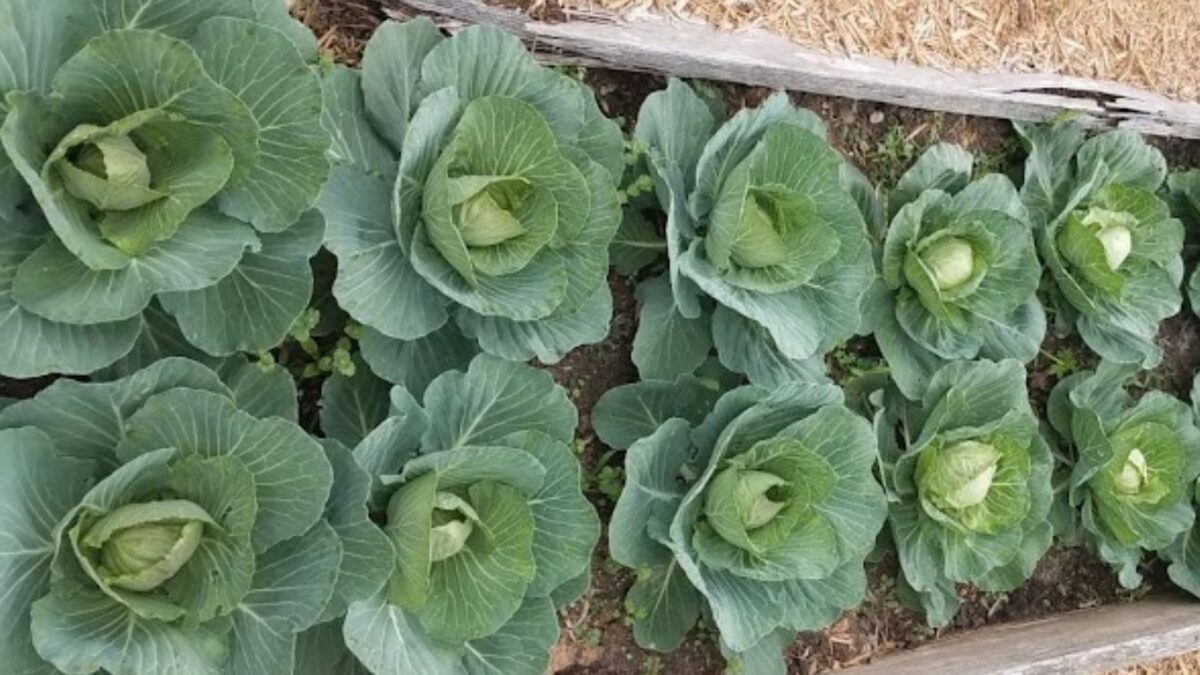
Brassicas — such as cabbage, broccoli, cauliflower, Brussels sprouts, and kale — are also heavy feeders and do not share growing requirements with blueberry bushes.
3. Nightshades
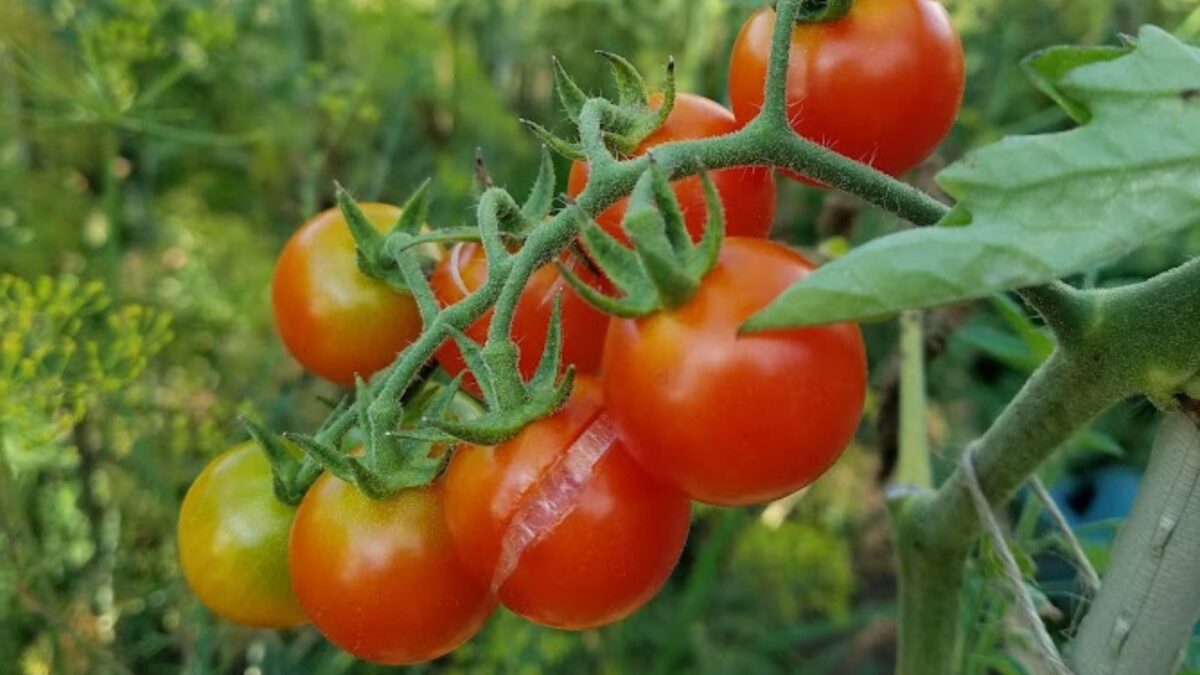
Tomatoes, peppers, potatoes, and other nightshades prefer a neutral soil pH. And, you guessed it, they will also compete with blueberries for essential nutrients in the soil.
Blueberries are fun, rewarding plants to grow. Plant them alongside the right companions in a beautiful edible landscape and enjoy bountiful crops of large, juicy berries summer after summer.

